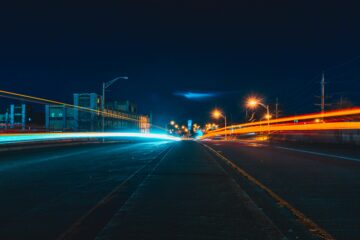The fact is, the only way you can be certain you won’t be too drunk to drive is by not drinking. It doesn’t take much alcohol to affect your ability to drive safely, and even if you “feel fine,” your driving is probably affected. However, there are ways to drink responsibly. An important part of this includes recognizing the signs that you (or someone else) is not fit to drive.
How Alcohol Affects Driving
Alcohol is a depressant: that means it slows down the messages between your brain and your body. Even if you don’t feel drunk, your body is slower to respond to your brain’s commands. Driving safely requires the ability to respond quickly to stimuli. Whether it’s your ability to brake safely when a light turns yellow or remembering to use a turn signal, slowed processing speed after drinking alcohol can have major effects.
Signs That You Are Too Drunk to Drive
Remember, chances are good that you have had too much to drink long before you feel like you are impaired. Judging by what you think you’re capable of at the moment is a dangerous approach. Instead, here are several signs that you should hand the keys to someone else more sober:
- Short term memory loss: Say a friend is telling a story across the table. Do you know what they’re talking about? Could you explain it to someone else who joined you midway through? Your own sense of this may be inflated, but if you are forgetting things easily, you should avoid getting behind the wheel as you may be too drunk to drive.
- A friend has suggested that you not drive: Chances are good that if a friend is expressing concern, you appear more impaired to others than you think you are. Even if you feel they are being overly cautious, trust them and find an alternative way home.
- Loss of balance or depth perception: This doesn’t mean falling-off-your-chair drunk. When you got up to use the restroom, did you bang into the doorframe? Did you reach for your water glass and almost knock it over? These are signs that your vestibular system is impaired, which will affect your ability to drive safely after consuming alcohol.
- You haven’t eaten a full meal: A glass of wine will affect you differently if you have it with a leisurely dinner as opposed to a handful of bar snacks at happy hour. If you need to drive home, make sure you are limiting how much you drink and that you are consuming food, which will help your body metabolize the alcohol more effectively.
As we said at the beginning of this post: the best way is to not drink (or not drive) at all. If you have a group of friends, take turns being the designated driver each time you go out. If you know you want to have a few cocktails and you haven’t eaten much, give your keys to a trusted friend. Schedule a cab or rideshare home before you even start drinking. The effects of DWI can be catastrophic—don’t put your finances, criminal history, or anyone’s safety at risk!
If you need a lawyer after a DWI or similar offense, we can help! Contact us today to set up an appointment.



